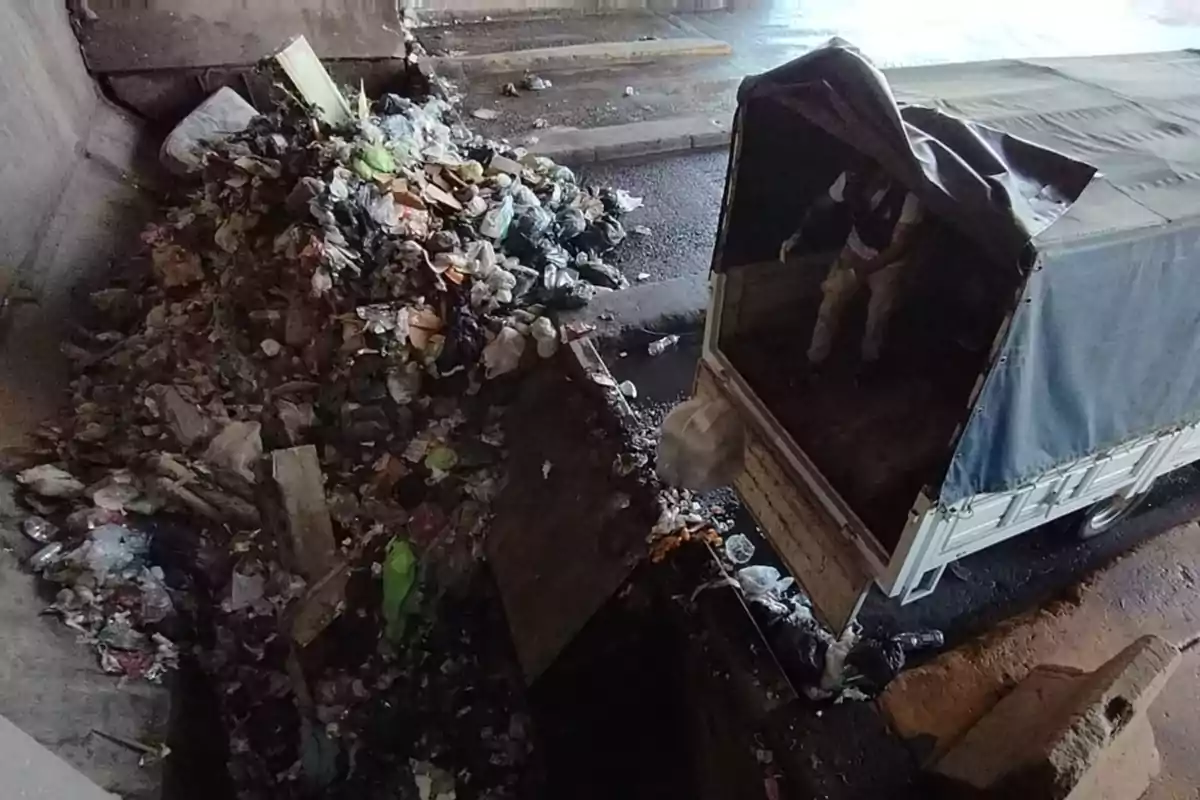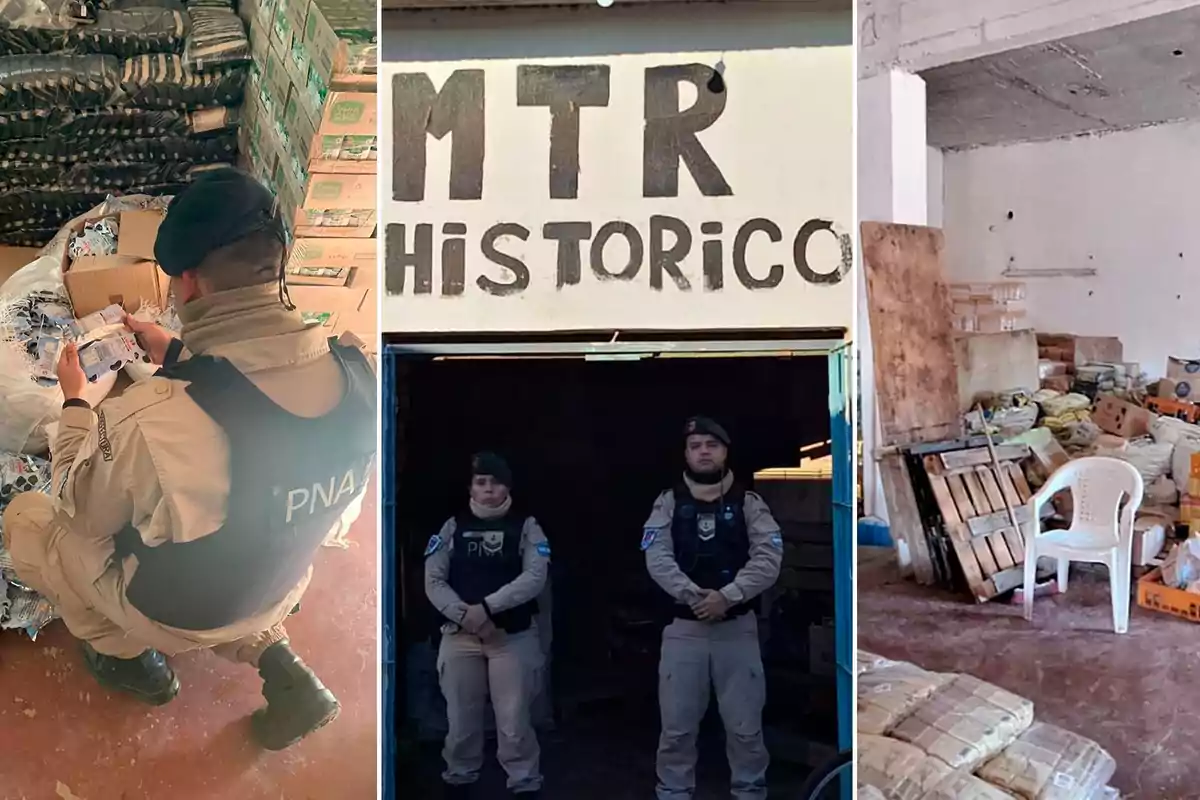
They burned 2 tons (4,409 pounds) of expired food seized in piquetero dining halls.
The products were expired and were not suitable for human consumption
By order of the federal judge of Quilmes, Luis Armella, 2,250 kilos (4,960 pounds) of food in poor condition were burned, which had been seized in warehouses linked to social and picketer groups, currently under investigation for alleged extortion of social plan beneficiaries.
The burning of these products, which were intended for families in vulnerable situations, took place on Tuesday, April 8, between 8 and 11 in the morning.
Among the destroyed food were powdered milk, tomato puree, sweet potato jam, lentils, and wheat flour. All were expired or had storage conditions that made them unhealthy. Bromatological analyses conducted in laboratories of different municipalities in Greater Buenos Aires determined that the products were not fit for human consumption and therefore recommended their immediate destruction to avoid health risks.
"Expeditious destruction of them is suggested due to the impossibility of consumption and to safeguard health issues," the experts detailed in the judicial reports.

The packaging of the incinerated products carried labels with legends such as: "Sale prohibited. Ministry of Community Development. Government of the Province of Buenos Aires". These foods were included in the 75 files processed by Judge Armella along with his secretary, Diego Quiroga.
In these cases, more than a hundred social and picketer leaders belonging to movements like Evita —led by the Kirchnerist Emilio Pérsico, former official of Alberto Fernández's administration and former member of Montoneros—, the Polo Obrero, La Dignidad Confluencia, MTD Teresa Rodríguez, the Clasista y Combativa Current (CCC), the Mariano Ferreyra Movement, the Federal Front of the Peoples, the CTD-Aníbal Verón, the San Jorge Resistance Movement, the Martín Fierro Cooperative, and the MIM Movement, among others, are being investigated.
During the operation to destroy food in poor condition, a truck belonging to the General Workshops of the Argentine Naval Prefecture (TAGEPNA) was used. The CEAMSE plant located in Pompeya served as the site for the transfer, crushing, and incineration of more than two tons of expired food products, in accordance with the judicial order issued by federal judge Luis Armella.
The food had been seized in the framework of 24 simultaneous raids carried out in mid-2024 in different localities in the south of Greater Buenos Aires. During these procedures, the Economic Crimes Investigation Department of the Prefecture seized more than 3,500 kilos (7,716 pounds) of expired food products, 104,000 units of food that had not been distributed, $500,000 in cash, a .22 caliber revolver, a replica of a 9 mm pistol, and 47 computer devices.

Additionally, about 100 boxes containing documents, attendance sheets, accounting records, and folders with information allegedly related to illicit maneuvers were confiscated.
In one of the raids, an individual was arrested for illegal possession of a firearm, and small amounts of marijuana were found in several places. The warehouse with the largest load of food in poor condition belonged to the Teresa Rodríguez Movement and was located at 511 Street, 3000, in Florencio Varela.
The judicial case originated after receiving more than 70 complaints through the line 134, enabled by the National Security Ministry, headed by Patricia Bullrich.
The submissions were made by beneficiaries of social plans who reported having been victims of extortion and pressures by Kirchnerist leaders and social leaders.
According to their statements, those who received the then Potenciar Trabajo program were forced to participate in mobilizations, street blockades, or political activities, under threat of losing economic aid or access to community kitchens. There were also cases where part of the subsidy was demanded as a condition to retain the benefit.
More posts: